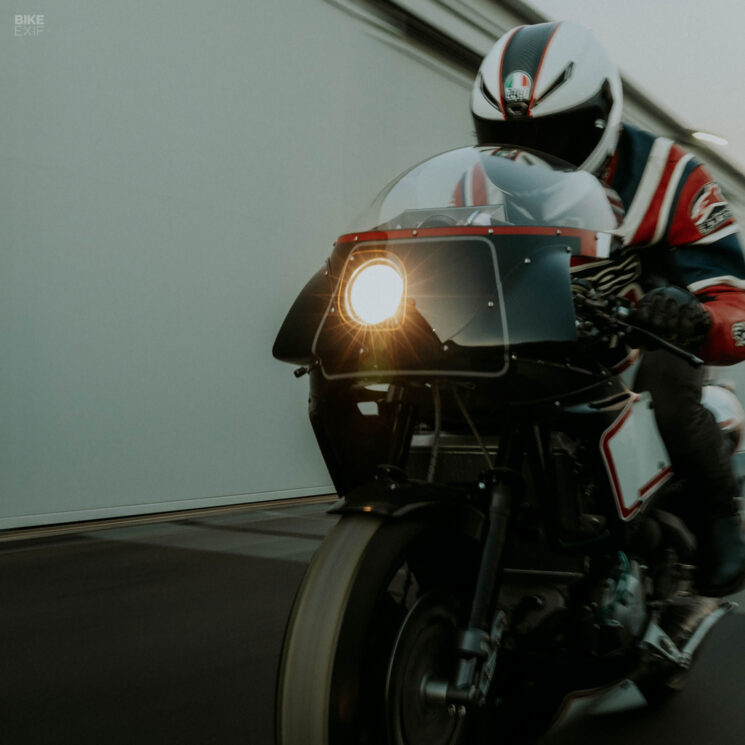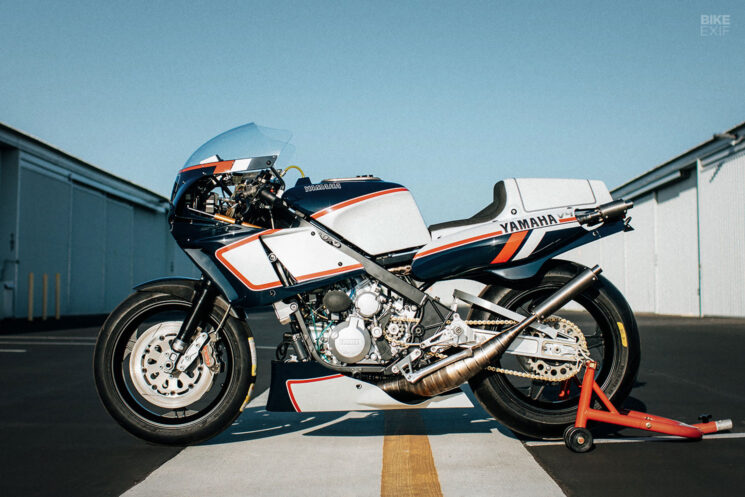
Only available in Japan and limited to just 1,600 units, the mid-80s Yamaha RZV500R is as rare as it is iconic. Based on the RZ500, the Japanese-market RZV500R sported a handful of upgrades—the most noteworthy of which was an aluminum frame.
The RZ500 was a desirable machine in its own right; a four-cylinder two-stroke race replica that mimicked Kenny Roberts’ YZR500. But its 88 hp output was too much for Japanese legislation at the time, so Yamaha restricted it to 64 hp and swapped the steel frame for a lighter aluminum unit to compensate for the drop in power. It was rebadged as the Yamaha RZV500R and sold out within the first week of its release (or so the legend goes).
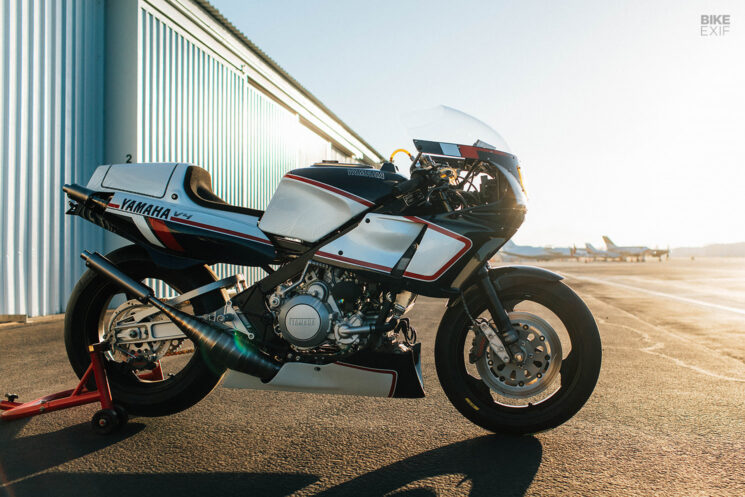
Despite its allure, Mike Vienne reckons that the RZV500R has room for improvement. He runs Championship Cycles in Los Angeles, California, where the philosophy is “less is more—because more is heavy, and heavy is slow.”
“The original RZV500R from Yamaha had many quirky features baked into it from the factory,” says Mike, “like a longitudinally mounted rear shock, anti-dive linked front brakes and forks, and cast 16” front and 18” rear wheels. Additionally, it was hampered by emissions constraints, and then, to add insult to injury, it weighed in at over 400 lbs. It all totaled up to a rather lackluster spec machine.”
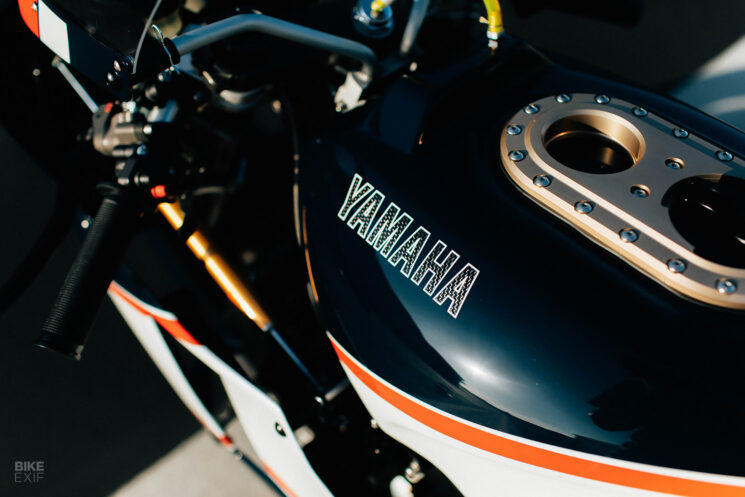
When this 1985-model Yamaha RZV500R rolled into Championship Cycles’ workshop, the initial discussions revolved around creating a Wayne Rainey Marlboro replica. “Those have already been done many times before,” says Mike. “I proposed an alternative design—one that recalled the GP motorcycles that ran the Daytona 200 in the early 1980s.”
“The concept was to incorporate a combination of new, period-correct components in conjunction with custom fabricated parts, influenced by the design of those 80s-era race bikes. We steered clear of modern anachronisms like upside-down forks and radial brakes. and instead opted for fully adjustable conventional forks, axial calipers, and a pair of custom-made full floating rotors that looked like they belonged on a mid-1980s race machine.”
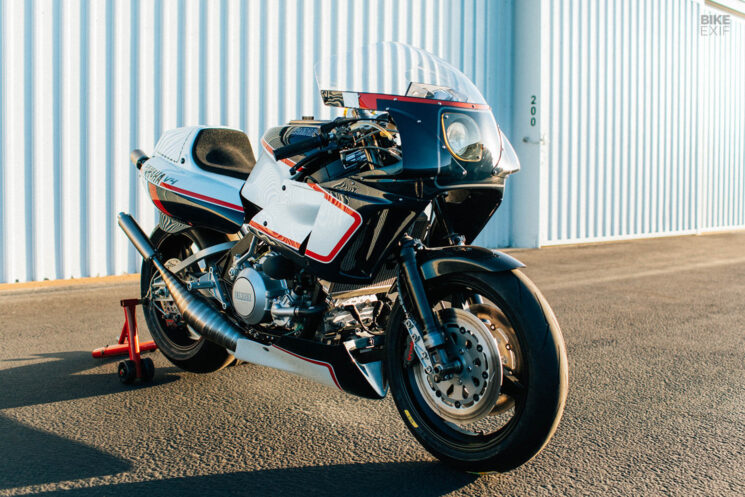
The RZV500R’s hand-welded aluminum frame was too good to ignore, so Mike used it as a jumping-off point for this pseudo-restomod project. New front and rear subframes were fabricated, along with a billet aluminum swingarm and rear-sets, all of which echo the triangular design of the main frame’s gussets. Well-known fabrication guru, Mark Atkinson, was responsible for the jaw-dropping CNC work.
“Yamaha had some pretty wild engineering going back in the day,” Mike adds. “The exhaust routing on the original bike essentially displaced the shock’s typical vertical layout and relegated it to a longitudinal position beneath the bike. Although that feature was retained on the build, all of the original heavy cast linkage and relay arms were remade in billet aluminum, and coupled to a new fully-adjustable Nitron shock.”
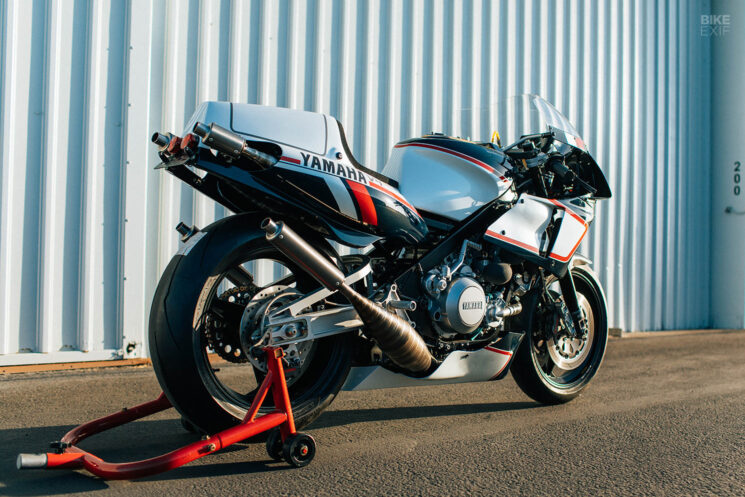
The Yamaha’s new forks are from Nitron too, and are held in place by a set of billet aluminum yokes that feature a more contemporary width and offset. The RZV’s original 16F/18R wheels are unique—but they’re also heavy and hard to find tires for. So Mike swapped them out for a gorgeous set of classic racing-style three-spoke forged aluminum hoops from Dymag.
Although the donor bike’s engine was running, it was in rough shape—unable to put out even the measly 64 hp that it offered from the factory. “Once it was opened up,” says Mike, “we found that three out of the four pistons were different sizes, and the heads looked like a chopping block.”
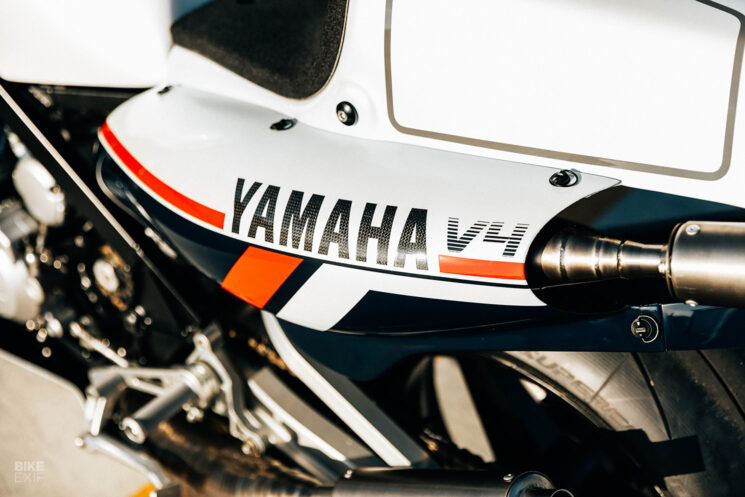
Wilson Performance rebuilt the motor, upgrading it to the tune of 100-plus horsepower. The transmission was modified too, and the Mikuni carbs were replaced with new single-circuit metering rod carbs from Smart Carb.
A two-stroke superbike is nothing without a good set of pipes, so Mike called on Wayne ‘Wobbly’ Wright in New Zealand to blueprint a set of custom chambers to match the fresh motor. Fellow Kiwi Bryce Meads then rolled and welded dozens of titanium strips together to complete the incredibly light—and very sexy—exhaust system.
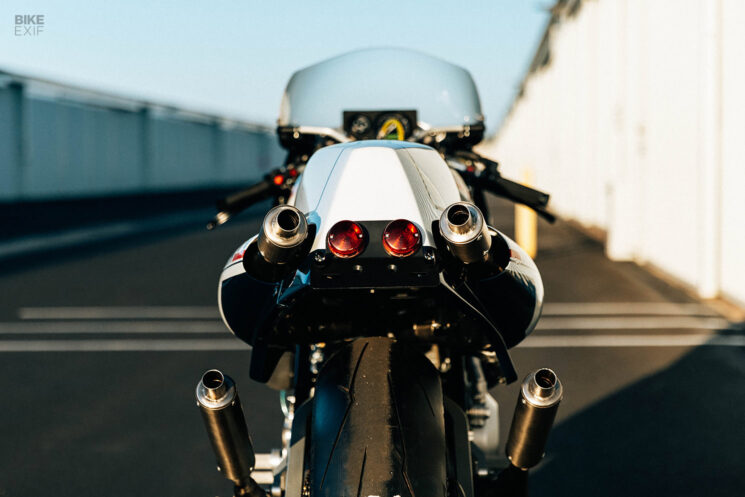
Just like on the OEM setup, two of the RZV’s four exhausts exit through the tail section. Mike built a new carbon fiber rear cowl to accommodate them, pulling inspiration from the aesthetics of early Yamaha race bikes. The tail is a two-piece unit, held in place by quick-turn fasteners.
There’s more carbon fiber work further forward, where a custom fuel cell mimics the bike’s original lines in a slimmer form factor. A billet endurance-style dry break fuel filler does duty up top.
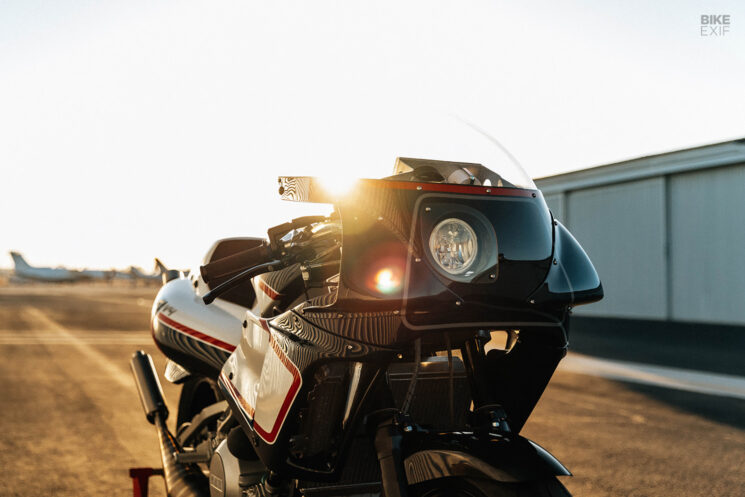
The race fairings are heavily modified period-correct Yamaha parts, made out of fiberglass. Mike specifically started with a three-quarter fairing design to expose more of the RZV’s screaming engine. A single offset headlight adds another dose of classic endurance racing style.
A custom dash sits behind the windscreen, hosting a Motogadget speedo and a water temperature gauge. Clip-on handlebars wear a Brembo brake control to match the up-specced brake system, with a hydraulic clutch master cylinder mounted on the opposite side. Additional weight-saving measures include a Lithium-ion battery, a pared-down wiring loom, an aluminum radiator from PWR, and more aluminum, titanium, and carbon fiber than you can shake a stick at.
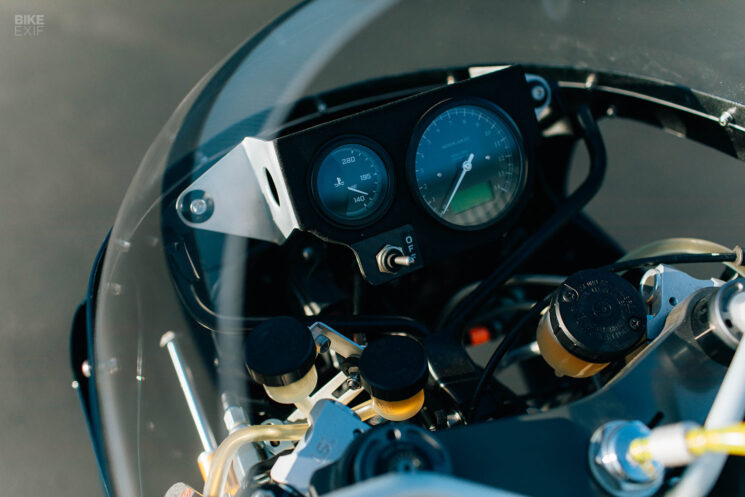
“Even though we didn’t go to full race bike extremes, we were able to lose over 100 lbs of weight,” Mike tells us. “The whole bike is an outright sensory experience to ride. The quartet of pipes ringing and popping with surliness; it just wants to be unleashed and it’ll turn any enclosed space into a hookah lounge instantly.”
“Of course, there’s no mistaking the smell of pre-mix as it unlocks primitive memories of shenanigans and hooliganism. It feels like two 250 cc motors strapped together—which it kind of is—but with more guts down low than you’d expect from a two-stroke.”
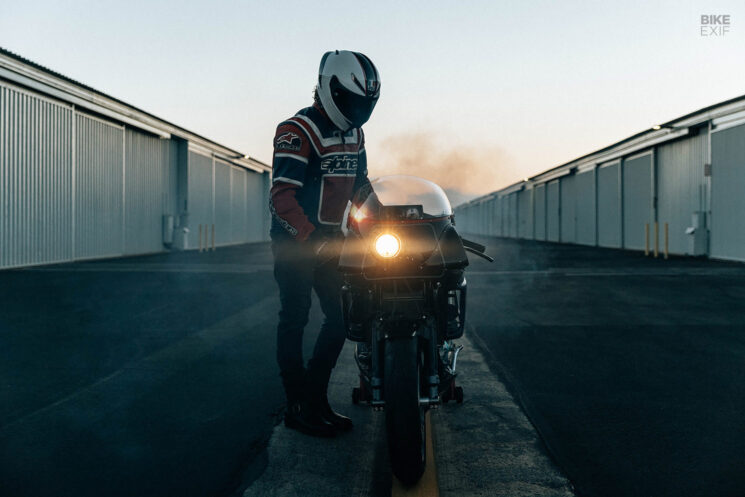
“Everything is rather tame-ish below 7,500 rpm, then two things happen simultaneously as it gets on the pipe: the revs rise extremely fast and the front wheel reaches frantically towards the sky. Shift, rev, repeat.”
Championship Cycles | Instagram | Images by Shaik Ridzwan of The Mighty Motor
